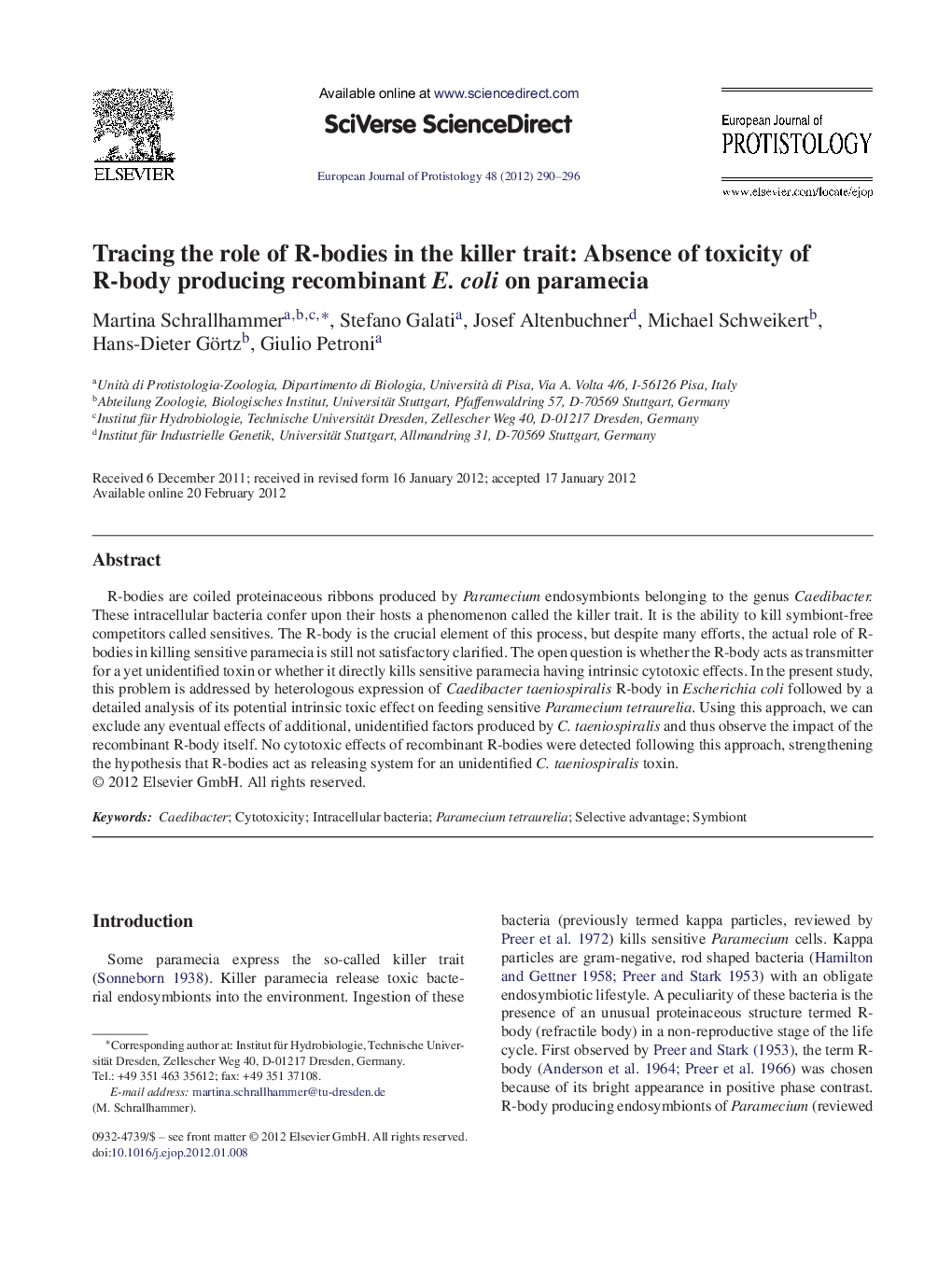| کد مقاله | کد نشریه | سال انتشار | مقاله انگلیسی | نسخه تمام متن |
|---|---|---|---|---|
| 8383576 | 1543299 | 2012 | 7 صفحه PDF | دانلود رایگان |
عنوان انگلیسی مقاله ISI
Tracing the role of R-bodies in the killer trait: Absence of toxicity of R-body producing recombinant E. coli on paramecia
دانلود مقاله + سفارش ترجمه
دانلود مقاله ISI انگلیسی
رایگان برای ایرانیان
کلمات کلیدی
موضوعات مرتبط
علوم زیستی و بیوفناوری
علوم کشاورزی و بیولوژیک
علوم کشاورزی و بیولوژیک (عمومی)
پیش نمایش صفحه اول مقاله

چکیده انگلیسی
R-bodies are coiled proteinaceous ribbons produced by Paramecium endosymbionts belonging to the genus Caedibacter. These intracellular bacteria confer upon their hosts a phenomenon called the killer trait. It is the ability to kill symbiont-free competitors called sensitives. The R-body is the crucial element of this process, but despite many efforts, the actual role of R-bodies in killing sensitive paramecia is still not satisfactory clarified. The open question is whether the R-body acts as transmitter for a yet unidentified toxin or whether it directly kills sensitive paramecia having intrinsic cytotoxic effects. In the present study, this problem is addressed by heterologous expression of Caedibacter taeniospiralis R-body in Escherichia coli followed by a detailed analysis of its potential intrinsic toxic effect on feeding sensitive Paramecium tetraurelia. Using this approach, we can exclude any eventual effects of additional, unidentified factors produced by C. taeniospiralis and thus observe the impact of the recombinant R-body itself. No cytotoxic effects of recombinant R-bodies were detected following this approach, strengthening the hypothesis that R-bodies act as releasing system for an unidentified C. taeniospiralis toxin.
ناشر
Database: Elsevier - ScienceDirect (ساینس دایرکت)
Journal: European Journal of Protistology - Volume 48, Issue 4, November 2012, Pages 290-296
Journal: European Journal of Protistology - Volume 48, Issue 4, November 2012, Pages 290-296
نویسندگان
Martina Schrallhammer, Stefano Galati, Josef Altenbuchner, Michael Schweikert, Hans-Dieter Görtz, Giulio Petroni,